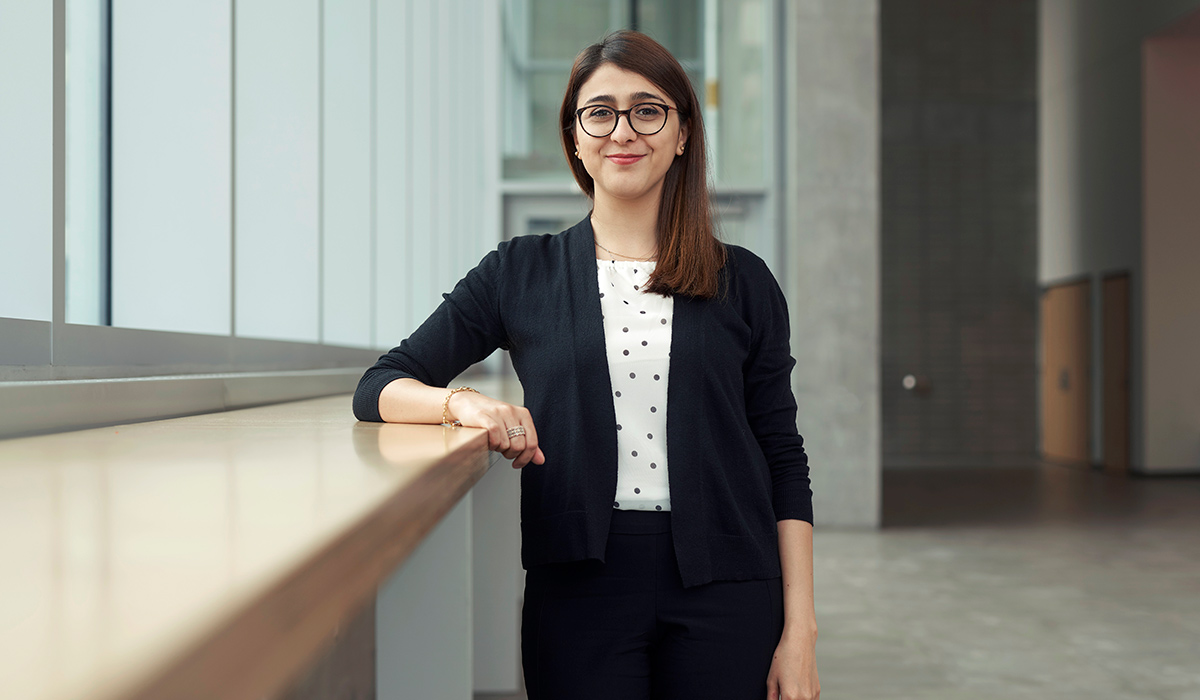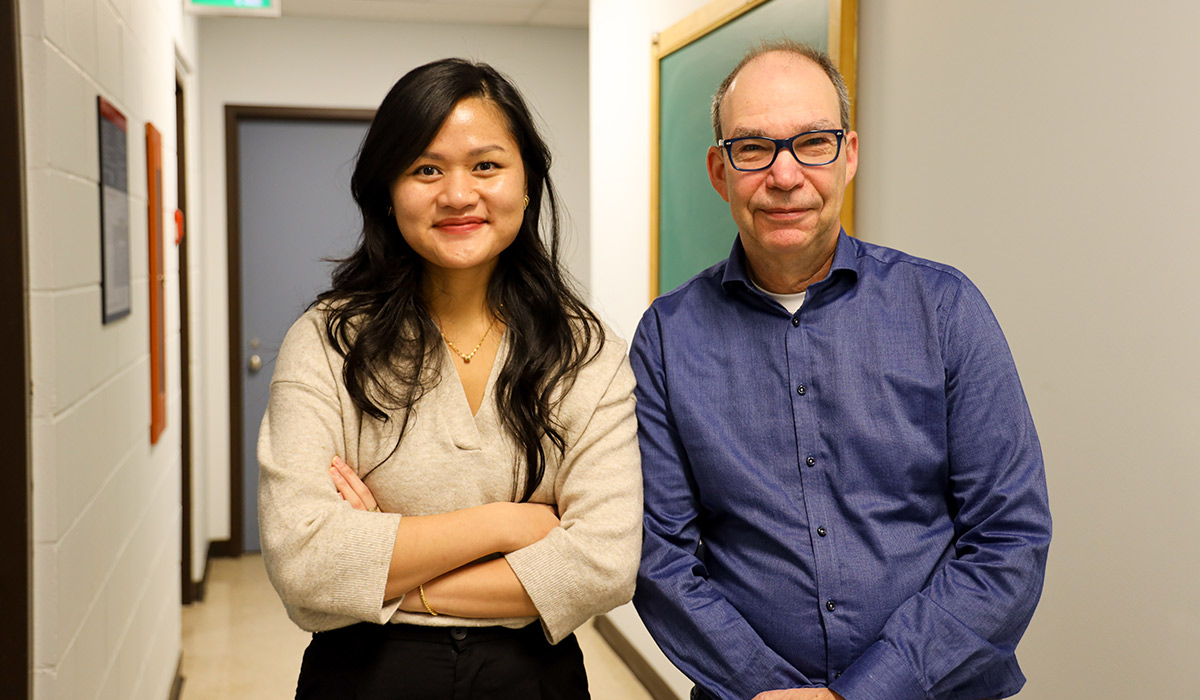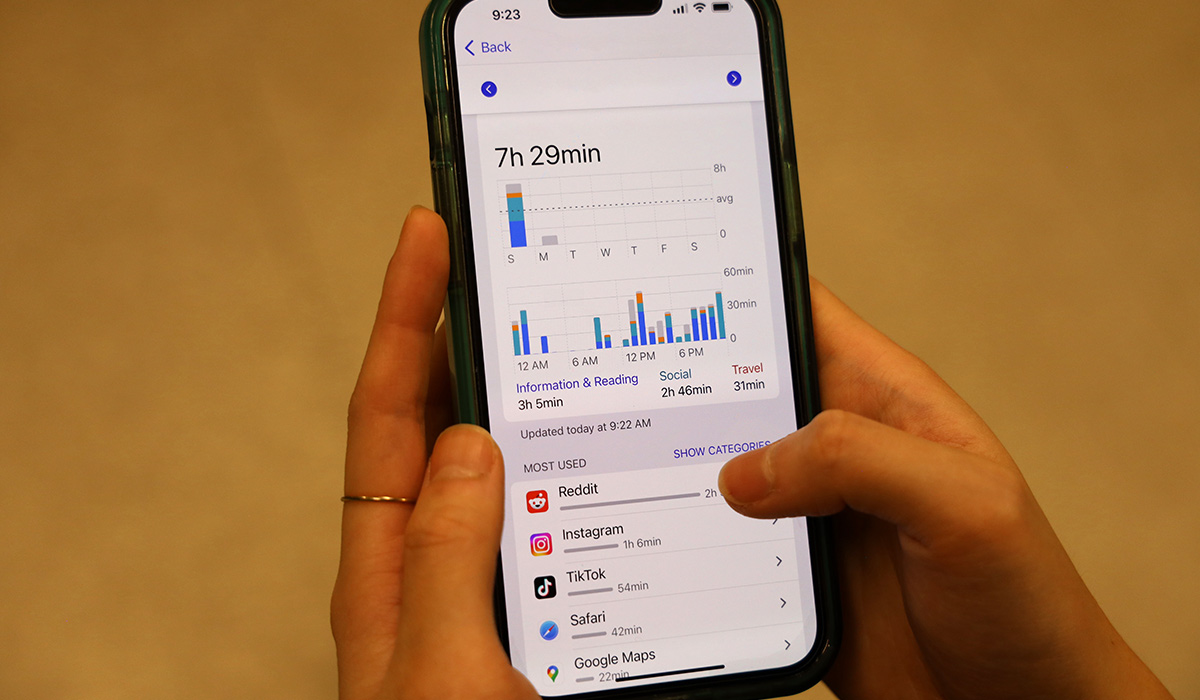Social media influencers are a powerful marketing tool, playing a pivotal role in shaping consumer preferences and driving brand engagement. With over 60 million influencers worldwide, the global value for social media marketing has reached over 28 billion CAD, tripling its value since 2019.
While social media influencers undoubtedly yield economic advantages, they can also lead followers to develop emotional and cognitive difficulties.

Carleton University researcher, Samira Farivar, is among the first to shed light on the adverse effects of social media influencing on followers’ mental health. Rooted in attachment theory, her groundbreaking findings offer valuable insights to guide influencers in fostering healthier relationships with followers, while simultaneously benefiting marketing goals.
“Promoting a healthier following is beneficial to influencers’ bottom line,” says Farivar, an assistant professor in Carleton’s Sprott School of Business.
“While initially, it might appear better to encourage excessive engagement, research indicates that over time, such addictive patterns negatively impact both people and business.”
Unhealthy Attachments with Social Media Influencers
In a 2022 study, Farivar conducted an online survey of 500 Instagram users to evaluate their attachments with influencers. She discovered that followers often develop parasocial, or one-sided relationships, with influencers – a type of relationship that is key to social media influencers’ success.
“Despite the follower extending emotional energy, interest and time, the influencer remains unaware of their identity,” explains Farivar.

This type of bonding can instigate many mental health problems as followers compare their lives to those of the influencers. Farivar’s report also revealed that these parasocial relationships cause addictive behaviours when using social media – such as the inability to stop checking their phone.
“This type of behaviour is what we call problematic engagement,” says Farivar.
In addition to proving that social media influencing can lead to problematic behaviours, Farivar wanted to uncover whether followers perceive their engagement as an issue. In a follow-up study published earlier this year, she discovered that social media users who claimed that they have complete control over their behaviour and could stop at any time, were actually showing the most signs of problematic engagement.
“People who are getting constant excitement from social media tend to ignore the potential harm,” explains Farivar. “Understanding this perception of threat is important. You can’t action a problem you don’t even know exists.”
Reducing Social Media Use
Another study about the potential harm of social media points to screen time as a key factor. Recent research conducted by Carleton psychologists Chris Davis and Helen Thai found that regular social media use can contribute to feelings of anxiety, depression and lower self-esteem in vulnerable youth and that reducing screentime can drastically reduce these effects.

Davis and Thai, alongside their partners at the Children’s Hospital of Eastern Ontario (CHEO), conducted a study with Carleton undergraduate students aged 17 to 25, who were already experiencing symptoms of anxiety and depression. Half of the participants kept their time on social media as normal while the other half were instructed to reduce it to 60 minutes a day. They tracked it via a screen-time tracker on their phones.
“After just 28 days, people reported fewer symptoms of depression, decreased levels of anxiety, and improved body esteem,” says Davis, a researcher in Carleton’s Department of Psychology. “The idea is that if you can do this for three weeks, perhaps it can become a habit.”
Reducing screen time, although it may sound simple, is not always easy. This is where features embedded in our technology can help.
“We can use technological functions, like our built-in screen time trackers on our smartphones, to our advantage,” explains Thai, who graduated from Carleton’s business (2017) and psychology (2021) programs.
“If we want to limit our social media, especially when it feels almost habitual and addictive, adding those extra barriers might help – and it comes at no financial cost.”
Farivar is looking in this direction as well. She is working on developing warning messages for social media apps that will alert users when their behaviour crosses over into potentially problematic – such as using an app for too long, continuously clicking on the same account or excessive scrolling.

The Role of Influencers
While self-regulation is important, Farivar believes that influencers and businesses have an important role to play to help mitigate feelings of comparison and envy among followers.
“Influencers can promote authenticity by showcasing the less glamorous aspects of their lives, sharing messages of self-care, body positivity,” Farivar says.
Further, Farivar says that collaborations between influencers and mental health professionals can be fostered to create educational content and resources that promote mental well-being. These collaborations can empower followers to prioritize their mental health and make informed choices in their media consumption.
“My hope is that by bringing awareness to these issues, it will instigate action and eventually lead to positive change.”
If you or someone you know are struggling with mental health, there are resources available to you. If you are part of the Carleton University community, support is also available through wellness.carleton.ca.